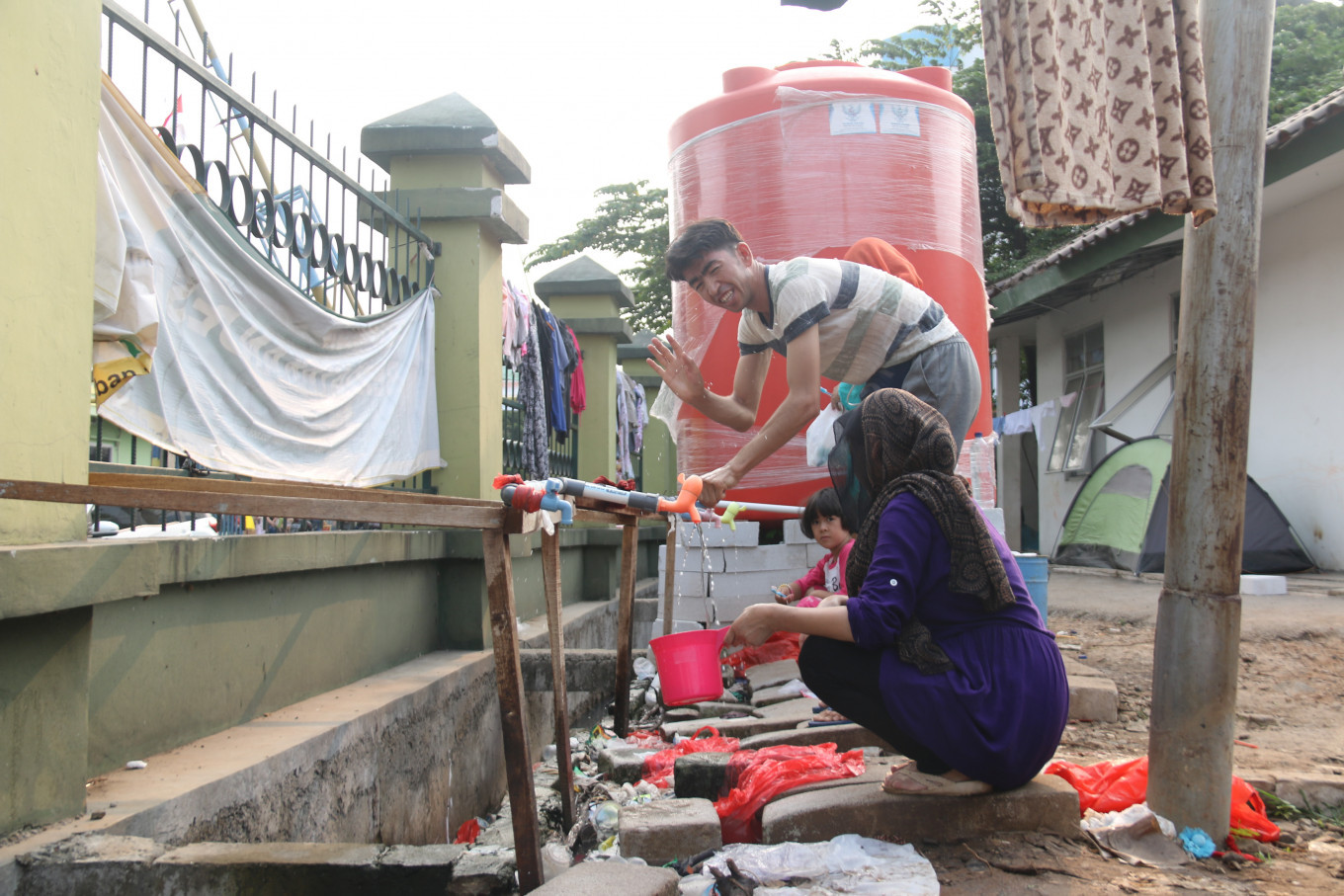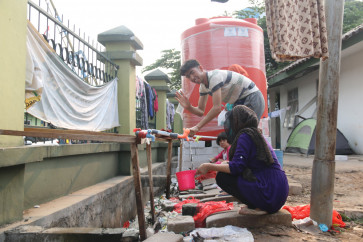Popular Reads
Top Results
Can't find what you're looking for?
View all search resultsPopular Reads
Top Results
Can't find what you're looking for?
View all search resultsRefugees in Jakarta near breaking point
Feroza, 21, fled with her in-laws from Pakistan nearly three years ago. She shares a cramped room with eight other people, which consists of two tents, a pillow and a blanket draped over the floor.
Change text size
Gift Premium Articles
to Anyone
 Asylum seekers staying in the former building of the West Jakarta military district command (Kodim) in Kalideres, West Jakarta, use water for their activities on Aug. 23, 2019. The Jakarta administration ended their aid to more than 1,000 asylum seekers and allowed asylum seekers to use only temporary shelters after Aug. 31. (JP/Rafaela Chandra)
Asylum seekers staying in the former building of the West Jakarta military district command (Kodim) in Kalideres, West Jakarta, use water for their activities on Aug. 23, 2019. The Jakarta administration ended their aid to more than 1,000 asylum seekers and allowed asylum seekers to use only temporary shelters after Aug. 31. (JP/Rafaela Chandra)
I
n an abandoned building in West Jakarta, refugees from various war-torn countries live crammed in tiny rooms and tents. There is no electricity, no running water and often no food or drinking water.
Approximately 250 refugees live in the complex. The majority come from Afghanistan, and some are from Pakistan, Iraq, and Somalia.
Feroza, 21, fled with her in-laws from Pakistan nearly three years ago. She shares a cramped room with eight other people, which consists of two tents, a pillow, and a blanket draped over the floor.
“Every night we spend in tears, in the darkness, without water, without any facilities,” she said. “We can’t say whether tomorrow we’ll be alive or not. People become fed up with hunger. They die with hunger here.”
None of the refugees in the camp know how long they will have to remain in Indonesia. Some of them have been waiting for nine years.
“Young boys, they become old. They were kids when they came here, but now they’ve got old here. But still, everyone’s future is unknown,” said Feroza.
Her two younger nephews Sajjad, 5, and Abbas, 11, went with her to Indonesia. Their father has lived in Australia for few years already but still has no refugee status. Their mother has passed away.

















